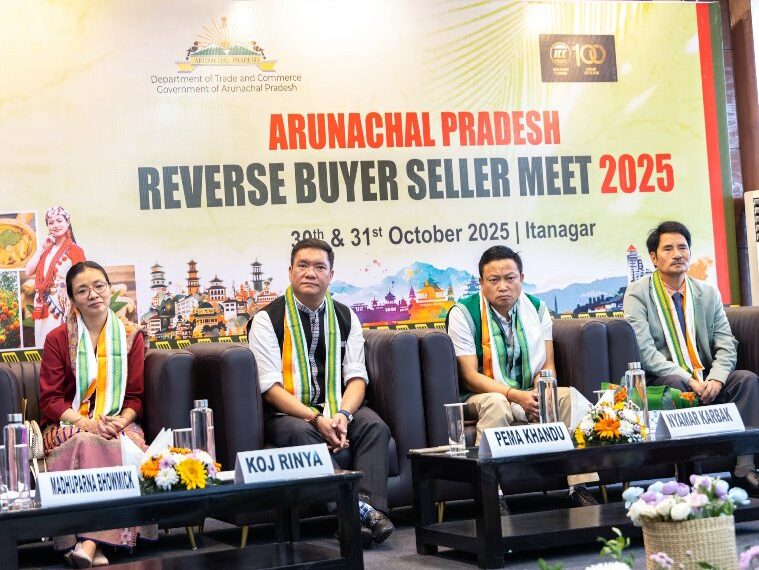Itanagar: Arunachal Pradesh Chief Minister Pema Khandu on Thursday inaugurated the two-day ‘Reverse Buyer-Seller Meet (RBSM) 2025’ in Itanagar.
Inaugurating the two-day meet, Khandu said the state’s rich natural resources, unique agro-climatic advantage, and traditional craftsmanship present vast opportunities for global trade.
The chief minister also visited the exhibition stalls at the Arunachal Pradesh Reverse Buyer–Seller Meet.
“Visited the exhibition stalls at the Arunachal Pradesh Reverse Buyer–Seller Meet 2025, showcasing our rich indigenous products, diverse agri-horti produce—from large cardamom, kiwi, ginger, bamboo shoot products, wild honey, and wine to handloom, handicrafts, and clay products. An inspiring platform connecting local producers with global buyers, promoting Arunachal’s unique identity and craftsmanship,” Khandu posted on X.
“This event is more than just a trade fair — it serves as a platform of opportunities, linking our farmers, artisans, and entrepreneurs with both domestic and global markets,” he said.
Organised by the Indian Chamber of Commerce (ICC) in collaboration with the states trade and commerce department, the event brings together producers, exporters, investors, and buyers from across India and abroad to explore investment opportunities in Arunachal Pradesh.
The chief minister said that over the last decade, major improvements in road, rail, air and digital connectivity have opened new export avenues.
He also interacted with participating buyers and export houses at the Arunachal Pradesh Reverse Buyer–Seller Meet 2025 to understand their expectations and market requirements.
Khandu said the meet would enable local producers, farmers, FPOs, and entrepreneurs to align their products with global market demands while preserving the unique identity and authenticity of Arunachal Pradesh’s traditional produce.
Noting that the state government is steering industrial development, he spoke about the Industrial Development and Investment Policy, 2025, which aims to drive sustainable growth through skill development, investment facilitation, and entrepreneurship.
The policy, he said, is supported by incentives such as transport and interest subsidies and insurance for resource-based industries.
Khandu added that the ease of doing business has been strengthened through simplified registration for MSMEs, and enhanced services at district industries centres (DICs) for credit access and market linkage.















